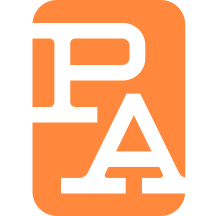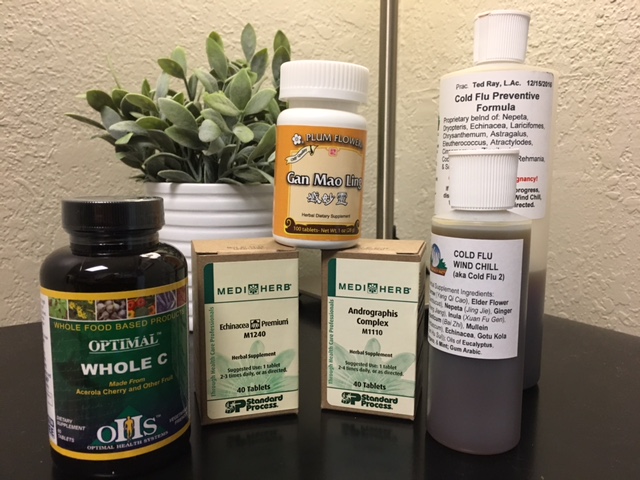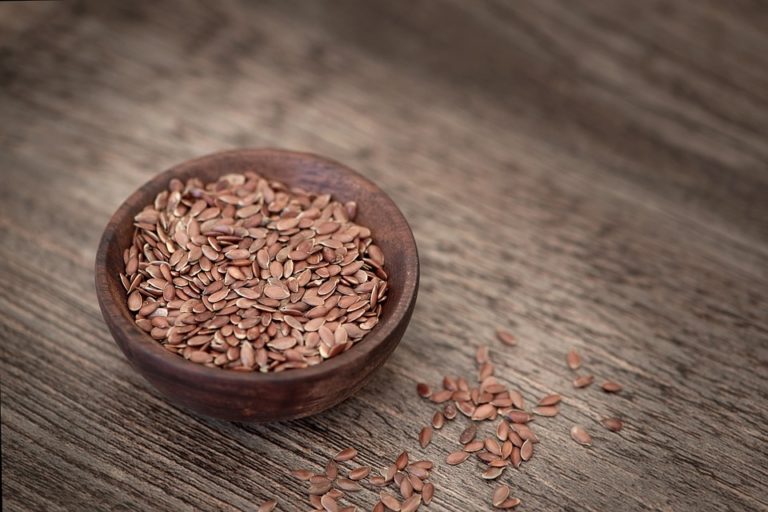A Guide To Mens Health Supplements Part 1: Athletic Performance
Much of a man’s natural athleticism comes from testosterone, the most important male sex hormone. Testosterone also serves as a stress-handling hormone, allowing men to more readily handle tough situations.
Testosterone is considered an anabolic steroid hormone. This implies that it boosts growth of human tissue. It helps us grow muscles, blood cells, sperm cells, and bone tissue, which makes it much easier to gain strength and power when we exercise.
As with any high performance machine, the body needs support and maintenance to keep it in working order. Therefore, we need to keep our testosterone levels topped-up if we want to perform our best and remain as healthy as possible.
Here we discuss how the male hormones can be used to our advantage and what herbs and supplements we can take to boost our athletic performance.
Testosterone & Athletic Performance
On average, a young male will produce between 4 and 7 mg of testosterone each day. Some of this testosterone is converted to estrogen through a process called aromatization, some is bound up by a protein called “sex hormone binding globulin” (or SHBG for short), while the rest floats freely in the bloodstream.
It is this free testosterone that goes on to provide the benefits of testosterone.
We can achieve ideal testosterone levels by controlling 4 variables;
- Inhibiting aromatase to prevent the conversion of testosterone to estrogen
- Inhibit SHBG to avoid neutralizing too much testosterone
- Boosting the function of the testosterone producing glands in the testes
- Increasing the number of testosterone receptors in the body
The Effects Of Testosterone On Athletic Performance:
- Supports collagen formation to strengthen our joints and ligaments
- Increases muscle mass to give us added power and strength
- Increases red blood cell production to deliver more oxygen to the muscles when they need it
- Increases and maintains bone density to strengthen our frame and allow higher impact resistance
A famous study published in 1996 showed that a group of men taking testosterone injections for 10 weeks gained an average of 13 pounds (6.1 kg) of fat-free muscle mass over the course of the study [10].
Although I don’t recommend taking testosterone in this way, it does a great job of highlighting the impact this hormone has on our muscle mass.
Testosterone Levels Change With Age
The body manufactures testosterone in the testes in fairly large amounts each day. A special region in the brain, called the hypothalamus oversees this function. The brain tells the testes how much testosterone to produce each day, and they respond accordingly.
As we age, this process can begin to break down. In fact, free testosterone levels have been shown to decline year by year at a rate of about 1-3%.
By the time we’re 40, we may have about 32% less testosterone than we did when we were 25. With this loss in testosterone, goes much of our athletic performance. This is around the time we start developing that “dad bod”, with more fat distribution around the middle, loss in muscle mass, and lower energy levels overall.
Ensuring optimal testosterone production is paramount to optimizing, and maintaining our athletic performance.
Other Symptoms Of Low Testosterone Levels In men
- Low sex drive
- Inability to achieve or maintain an erection
- Reduced muscle mass and strength
- Increased body fat
- Reduced bone density
- Fatigue
- Changes in hair patterns
- Decline in memory
Supplements for Male Athletic Performance
1. Acetyl-L-Carnitine
Main Benefit: Increases testosterone receptors in the body.
One way to boost the benefits of testosterone is to increase the number of receptors that are designed to respond to testosterone.
Imagine we have a bunch of testosterone moving around through the blood. All the testosterone wants to do is bind to a receptor. If there aren’t enough receptors to bind to, the testosterone might be metabolized by the liver. In this case, even perfect testosterone concentrations would appear deficient.
If there were an abundant supply of these receptors, however, any testosterone that makes its way through the bloodstream will be able to find a receptor, and make something happen.
One of the best ways to do this is by supplementing Acetyl-L-Carnitine or ALCAR for short.
Studies have shown that doses as low as 2g of ALCAR per day can increase the number of androgen receptors on muscle cells [13].
Animal studies have also showed that daily supplementation of ALCAR was able to prevent the decline of testosterone levels in mice exposed to long-term stress [14].
2. Ginseng (Panax ginseng)
Main Benefit: Male tonic. Boosts innate virility.
Ginseng is one of the most popular herbs known to man. It was first discovered 5000 years ago in the mountains of Manchuria, China. It’s since become highly revered as a strength and vitality-giving male tonic herb.
In modern terms, we refer to herbs like ginseng as adaptogens, a class of herbs that improve our overall ability to stay balanced, and resist stressors (including exercise).
Ginseng regulates blood sugar levels, boosts male libido, supports the cardiovascular system, improves our executive function, and increases energy levels.
Many men take ginseng as a general health tonic, and pre-workout to boost energy levels. It has the unique benefit of increasing energy without causing overstimulation.
Its effects are mainly achieved by changing the way we metabolize energy in our body, making us more efficient with how we use our fuel sources (sugar), and how our cardiovascular system is able to move nutrients around the body.
Ginseng is essentially like hitting “Sport-Mode” in the coupe and going for a drive on the highway.
Studies on ginseng have shown that it lowers the concentration of stress hormones in the body [1], normalizes blood sugar levels [2], and significantly reduces the chances of developing cardiovascular disease [3-5].
3. Branched Chain Amino Acids (BCAAs)
Main Benefit: Drives muscle growth
BCAA stands for “branched chain amino acids”. It’s a term given for 3 amino acids; leucine, isoleucine, and valine.
Although there are 20 amino acids that are important to human health, these 3 are the most important for muscle building and athletic performance.
Exercise drains our body of these amino acids. Leucine is used up during protein synthesis, and isoleucine is used to regulate energy metabolism. We know that valine is important as well, but researchers are still trying to understand its specific role in the process.
When we deplete these amino acids in the body during a workout it can cause an influx of tryptophan into the brain. Tryptophan surges in the brain can increase serotonin, which ultimately causes us to become fatigued more easily. [15].
By supplementing BCAAs, or eating a diet high in these proteins naturally, we can eliminate the fatigue that often comes with working out.
4. Maca
Main Benefit: Fuels hormone production and buffers the body from stress.
Maca is a root vegetable related to the common turnip. It’s far from your average vegetable.
Maca is considered the highest crop in the world, preferring the harsh climates of the high Andean mountain ranges of South America.
The plant is eaten as a vegetable by the indigenous cultures living in the region, but is also used as an athletic supplement by men throughout the world. It’s even been referred to in the scientific literature as a “naturally derived anabolic supplement” [7].
The root offers several benefits to men in terms of hormonal and athletic support.
A. It’s Nutritional
First of all, it’s high in the amino acids and minerals needed to build both testosterone and muscle fibers, and contains enough carbohydrates to fuel a workout.
Maca contains 10% protein by weight, and roughly 60% carbohydrates.
B. It Contains Steroidal Compounds
Additionally, maca contains a steroid known as beta-ecdysone, which is found in a number of adaptogenic plant and fungi species, as well as some insects.
It’s a steroidal hormone that delivers a diverse set of effects in different species of animals.
In humans, beta-ecdysone has been shown to increase protein synthesis and prevents the breakdown of skeletal muscles [6]. It’s also been shown to slow the breakdown of cartilage in the joints [8].
C. It Improves Our Resistance To Stress
Maca has also been shown to have a balancing effect on stress hormones in both males and females. It works by targeting the region in the brain responsible for keeping these hormones in balance, known as the hypothalamus [9].
Closing Thoughts
The male body, like anything else, needs to be maintained to ensure its working at maximum efficiency and capacity.
Understanding how it works is the first step to doing maintenance or making repairs.
Thanks to a variety of well-researched herbs and supplements available on the market, we can make educated decisions on what to give the body to make sure it maintains peak performance well into our seventies, eighties and beyond!
Research
- Bhattacharya, S. K., & Muruganandam, A. V. (2003). Adaptogenic activity of Withania somnifera: an experimental study using a rat model of chronic stress. Pharmacology Biochemistry and Behavior, 75(3), 547-555.
- Vuksan, V., Sung, M. K., Sievenpiper, J. L., Stavro, P. M., Jenkins, A. L., Di Buono, M., … & Choi, M. (2008). Korean red ginseng (Panax ginseng) improves glucose and insulin regulation in well-controlled, type 2 diabetes: results of a randomized, double-blind, placebo-controlled study of efficacy and safety. Nutrition, Metabolism and Cardiovascular Diseases, 18(1), 46-56.
- He, H., Xu, J., Xu, Y., Zhang, C., Wang, H., He, Y., … & Yuan, D. (2012). Cardioprotective effects of saponins from Panax japonicus on acute myocardial ischemia against oxidative stress-triggered damage and cardiac cell death in rats. Journal of ethnopharmacology, 140(1), 73-82.
- Zhang, F. L., & Chen, X. (1987). Effects of ginsenosides on sympathetic neurotransmitter release in pithed rats. Zhongguo yao li xue bao= Acta pharmacologica Sinica, 8(3), 217.
- Wood, W. B., Roh, B. L., & White, R. P. (1964). Cardiovascular actions of Panax ginseng in dogs. The Japanese Journal of Pharmacology, 14(3), 284-294.
- Dai, W., Jiang, L., Lay, Y. A. E., Chen, H., Jin, G., Zhang, H., … & Yao, W. (2015). Prevention of glucocorticoid induced bone changes with beta-ecdysone. Bone, 74, 48-57.
- Lafont, R., & Dinan, L. (2003). Practical uses for ecdysteroids in mammals including humans: and update. Journal of Insect Science, 3(1).
- Kapur, P., Wuttke, W., Jarry, H., & Seidlova-Wuttke, D. (2010). Beneficial effects of β-Ecdysone on the joint, epiphyseal cartilage tissue and trabecular bone in ovariectomized rats. Phytomedicine, 17(5), 350-355.
- Meissner, H. O., Mrozikiewicz, P., Bobkiewicz-Kozlowska, T., Mscisz, A., Kedzia, B., Lowicka, A., … & Barchia, I. (2006). Hormone-balancing effect of pre-gelatinized organic Maca (Lepidium peruvianum Chacon):(I) biochemical and pharmacodynamic study on Maca using clinical laboratory model on ovariectomized rats. International journal of biomedical science: IJBS, 2(3), 260.
- Huhtaniemi, I. (2014). Late-onset hypogonadism: current concepts and controversies of pathogenesis, diagnosis and treatment. Asian Journal of Andrology, 16(2), 192.
- Tajar, A., Huhtaniemi, I. T., O’neill, T. W., Finn, J. D., Pye, S. R., Lee, D. M., … & Giwercman, A. (2012). Characteristics of androgen deficiency in late-onset hypogonadism: results from the European Male Aging Study (EMAS). The Journal of Clinical Endocrinology, 97(5), 1508-1516.
- Harman, S. M., Metter, E. J., Tobin, J. D., Pearson, J., & Blackman, M. R. (2001). Longitudinal effects of aging on serum total and free testosterone levels in healthy men. The Journal of Clinical Endocrinology & Metabolism, 86(2), 724-731.
- Kraemer, W. J., Volek, J. S., French, D. N., Rubin, M. R., Sharman, M. J., Gomez, A. L., … & Hakkinen, K. (2003). The effects of L-carnitine L-tartrate supplementation on hormonal responses to resistance exercise and recovery. The Journal of Strength & Conditioning Research, 17(3), 455-462.
- Bidzinska B, et al. Effect of different chronic intermittent stressors and acetyl-l-carnitine on hypothalamic beta-endorphin and GnRH and on plasma testosterone levels in male rats. Neuroendocrinology. (1993)
- Van Hall, G., Raaymakers, J. S., Saris, W. H., & Wagenmakers, A. J. (1995). Ingestion of branched‐chain amino acids and tryptophan during sustained exercise in man: failure to affect performance. The Journal of Physiology, 486(3), 789-794.







